6 Herbs to Aid The Respiratory System
When it comes to natural ways to fight respiratory infections, boost immunity, and soothe coughs, nature provides a treasure trove of herbal remedies. In this post, we highlight six potent herbs that support respiratory health, ease coughs, clear mucus, and enhance your body’s natural defense system. Whether you're facing seasonal flu or chronic respiratory challenges, these herbs are time-honored allies in traditional herbal medicine.
Astragalus, Astagalus membranaceus
Fight infection and boost immunity
immunomodulator
Astragalus is a revered herb known for its rich history in traditional medicine across Asia, especially in Mongolia. This perennial plant, a proud member of the pea family, grows to a height of 12–36 inches and displays a hairy stem adorned with lateral shoots and clusters of delicate leaflets. Its charming springtime blossoms—ranging in hues from blue to pink—signal the arrival of a season deeply intertwined with herbal renewal and healing traditions.
Renowned for its immune-enhancing properties, Astragalus is used as a tonic to bolster the body’s natural defenses. The plant’s root contains a unique blend of polysaccharides, flavonoids, and saponins that work synergistically to stimulate the immune system and protect against viral infections. Traditionally, it has been employed to support respiratory health, helping to alleviate symptoms associated with upper respiratory tract infections, shortness of breath, and persistent coughs during the colder seasons.
For practical application, Astragalus can be incorporated into your wellness routine in several ways. Enjoy it as a warming tea or take advantage of a concentrated alcohol-based tincture to unlock its full spectrum of bioactive compounds. Many herbalists also recommend capsules for daily use, ensuring a steady support system throughout the flu season. Always remember to harvest sustainably—gathering the root in the fall while leaving enough behind for the plant to thrive for years to come.
Ecinacea, E. angustifolia, E. pallida, and E. purpurea
Stimulate immune system
immune enhancer
Echinacea, commonly known as coneflower, is a striking perennial native to North and Central America. This hardy herb flourishes in sunny prairies and open woodlands, where it can reach up to 4 feet in height. With its vibrant purple or pink blooms and a characteristic conical flower head, Echinacea has not only captivated gardeners but also earned a revered place in herbal medicine for its ability to turn the tide against respiratory infections.
The strength of Echinacea lies in its complex spectrum of active compounds, including alkamides, cichoric acid, and polysaccharides. These constituents work together to stimulate the immune system, encouraging the body to fight off infections before they take hold. Many studies have illustrated Echinacea’s efficacy in reducing the severity and duration of respiratory symptoms, making it a popular choice for those seeking to prevent or mitigate colds and flu.
For best results, Echinacea is typically consumed as an alcohol tincture, which concentrates its bioactive ingredients, or as a brewed tea derived from its dried aerial parts. Including this herb in your daily regimen can offer robust support for your immune defenses, while its pleasant floral notes and gentle taste make it a welcome addition to seasonal wellness routines.
Mullein, Verbascum thapsus
Soothe nervous coughs
expectorant
Mullein is a resilient biennial celebrated for its large, velvety basal leaves and striking clusters of yellow flowers. Able to thrive in nutrient-poor soils, this robust herb mirrors its environment by offering a natural path to detoxification and respiratory cleansing. Its soft, fuzzy foliage and erect flowering stalks make it easily recognizable in meadows and wild landscapes.
The therapeutic power of mullein is primarily attributed to its gentle expectorant action. When you’re battling congestion or persistent coughs, its bioactive compounds help to loosen and expel excess mucus, restoring balance in the respiratory tract. Traditional herbalists have long recommended mullein for its capacity to ease irritation and support overall lung health, making it a trusted ally during times of respiratory distress.
To fully harness mullein’s benefits, consider preparing a cold infusion that preserves its delicate constituents. Alternatively, for quicker relief, brew a steaming cup of mullein tea and inhale the aromatic vapors before sipping. This dual approach not only supports the clearing of airways but also provides soothing comfort during bouts of cough or seasonal colds.
Pelargonium, Pelargonium sidoides
Treat respiratory infection
immune enhancer
Native to the rocky grasslands of South Africa, Pelargonium sidoides is a compact herb known for its unexpected beauty and potent medicinal properties. Unlike tall, imposing plants, Pelargonium stays low to the ground yet bursts into flower nearly year-round with dramatic, dark, almost purple blooms. Its unassuming appearance belies a significant role in traditional remedies for respiratory ailments.
Recent scientific studies have shed light on the antibacterial properties of Pelargonium, particularly emphasizing its highly oxygenated coumarin compounds. These bioactive molecules, including pro-delphinidins and proanthocyanidins, contribute to the herb’s ability to fight off pathogens responsible for upper respiratory infections. The synergy among these constituents has positioned Pelargonium as a modern herbal remedy for individuals battling acute respiratory symptoms.
For practical use, a well-prepared tincture made from Pelargonium’s roots delivers the most concentrated dose of its healing properties. It is best employed as a short-term intervention when respiratory symptoms arise, rather than as a daily supplement. This targeted approach maximizes its benefits in easing coughs and reducing the severity of infections, providing a natural complement to your overall respiratory wellness plan.
Sage, Salvia officinalis, Salvia elegans, Savia apiana
Ease coughing & sore throats
expectorant
Sage is a versatile herb that comes in various forms, from common culinary sage to sacred white sage and flavorful pineapple sage. Adapted to thrive in dry, rocky landscapes, sage boasts fragrant leaves and delicate blooms in shades of pink, purple, or white. Its long-standing use in both kitchens and apothecaries testifies to its impressive array of medicinal and aromatic properties.
Traditionally, sage has been employed to alleviate respiratory discomfort, soothe sore throats, and reduce coughing. The herb’s active compounds exert anti-inflammatory, antimicrobial, and astringent effects that can rapidly ease irritation in the throat and airways. Sage’s essential oil is also a valued component in aromatherapy, where diffusing its natural aroma provides gentle support for lung function and overall respiratory comfort.
For optimal results, consider enjoying sage as a warm, soothing tea that calms coughs from within, or incorporate a few drops of its essential oil in a diffuser to create a healing atmosphere. Sage can also be taken as a tincture, ensuring a direct delivery of its potent bioactive constituents. Whether used as a culinary ingredient or a medicinal remedy, sage offers versatile benefits that enhance both flavor and well-being.
Wild Cherry Bark, Prunus avium
Soothe wet coughs
antitussive & astringent expectorant
Wild Cherry Bark is derived from the North American cherry tree and has been a staple in traditional herbal medicine for generations. Known for its distinctive flavor and potent medicinal qualities, this bark is harvested with care, ensuring that sustainable practices are followed so that the trees can continue to thrive. Its natural astringent properties make it a crucial remedy for respiratory ailments, particularly those involving excessive mucus production.
The primary action of Wild Cherry Bark lies in its ability to serve as an effective antitussive. Its active constituents work to dry and tighten mucous membranes, thereby reducing the severity of wet coughs and soothing irritation in the respiratory system. Additionally, its anti-inflammatory effects help calm the nerves responsible for triggering persistent coughing, offering relief when combined with other supportive therapies.
To experience its benefits, Wild Cherry Bark can be prepared as an alcohol-based tincture or steeped into a robust tea. Both methods provide rapid relief for coughs and help clear the airways. Given its potency, it is important to adhere to recommended dosages and consult with a healthcare professional, especially for vulnerable groups like pregnant or breastfeeding individuals.
Herbs have long been celebrated in traditional herbal medicine for their ability to naturally support respiratory health. Integrating these six herbal allies—Astragalus, Echinacea, Mullein, Pelargonium, Sage, and Wild Cherry Bark—into your wellness routine can empower your body to combat infections, ease coughs, and maintain clear breathing throughout the year. As you explore these natural remedies, remember that individual needs vary; consulting with a healthcare professional before starting any new herbal regimen is always a wise step for personalized care.
References
Harley, C. B., Liu, W., Blasco, M., Vera, E., Andrews, W. H., Briggs, L. A., & Raffaele, J. M. (2011). A natural product telomerase activator as part of a health maintenance program. Rejuvenation research, 14(1), 45–56. https://doi.org/10.1089/rej.2010.1085
Vohra, S., & Rieder, M. (2005). Efficacy of echinacea for upper respiratory tract infections in children. Paediatrics & child health, 10(4), 224. https://doi.org/10.1093/pch/10.4.224
Chicca, A., Raduner, S., Pellati, F., Strompen, T., Altmann, K. H., Schoop, R., & Gertsch, J. (2009). Synergistic immunomopharmacological effects of N-alkylamides in Echinacea purpurea herbal extracts. International immunopharmacology, 9(7-8), 850–858. https://doi.org/10.1016/j.intimp.2009.03.006
Turker, A. U., & Camper, N. D. (2002). Biological activity of common mullein, a medicinal plant. Journal of ethnopharmacology, 82(2-3), 117–125. https://doi.org/10.1016/s0378-8741(02)00186-1
Ghorbani, A., & Esmaeilizadeh, M. (2017). Pharmacological properties of Salvia officinalis and its components. Journal of traditional and complementary medicine, 7(4), 433–440. https://doi.org/10.1016/j.jtcme.2016.12.014
Telichowska, A., Kobus-Cisowska, J., & Szulc, P. (2020). Phytopharmacological Possibilities of Bird Cherry Prunus padus L. and Prunus serotina L. Species and Their Bioactive Phytochemicals. Nutrients, 12(7), 1966. https://doi.org/10.3390/nu12071966














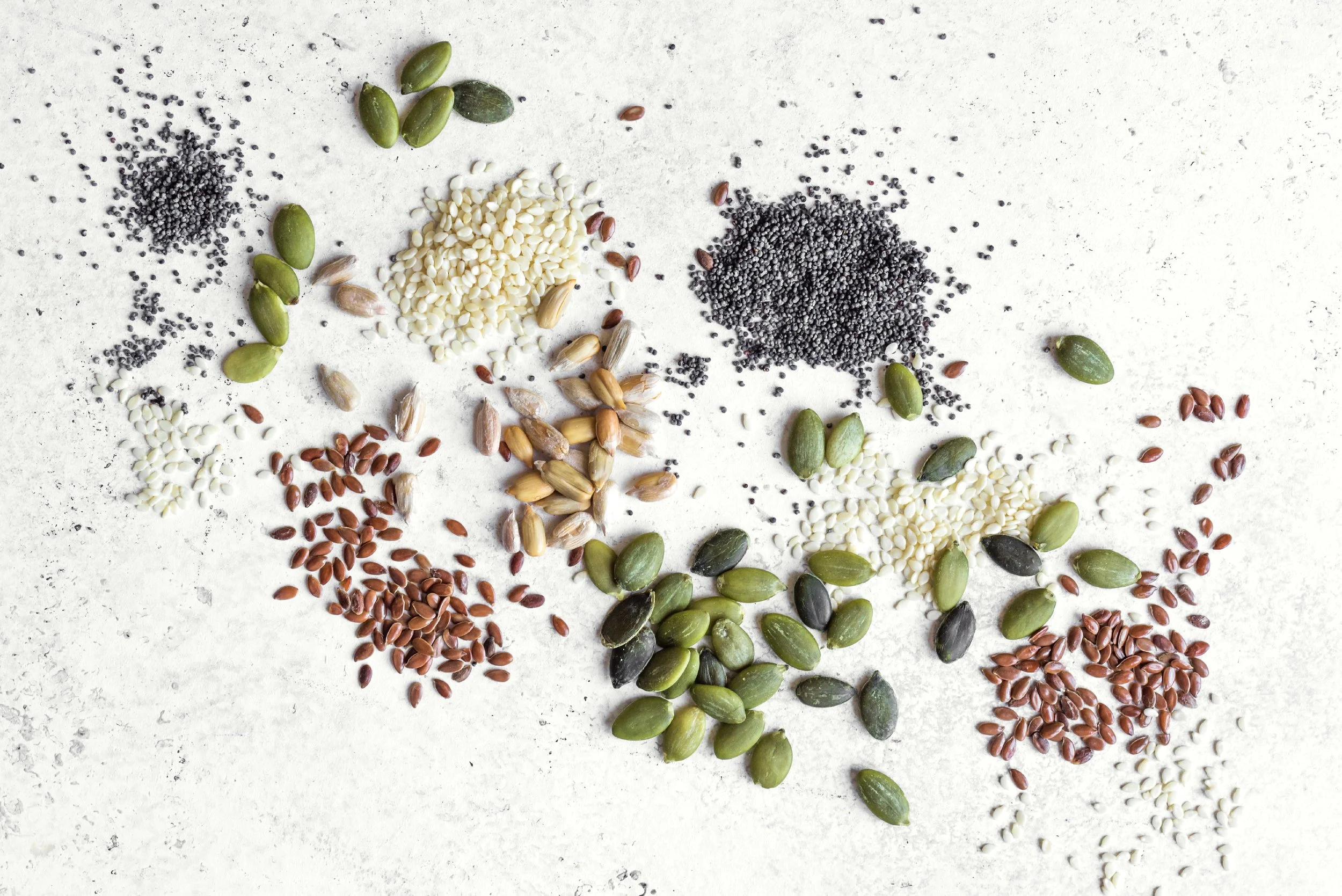
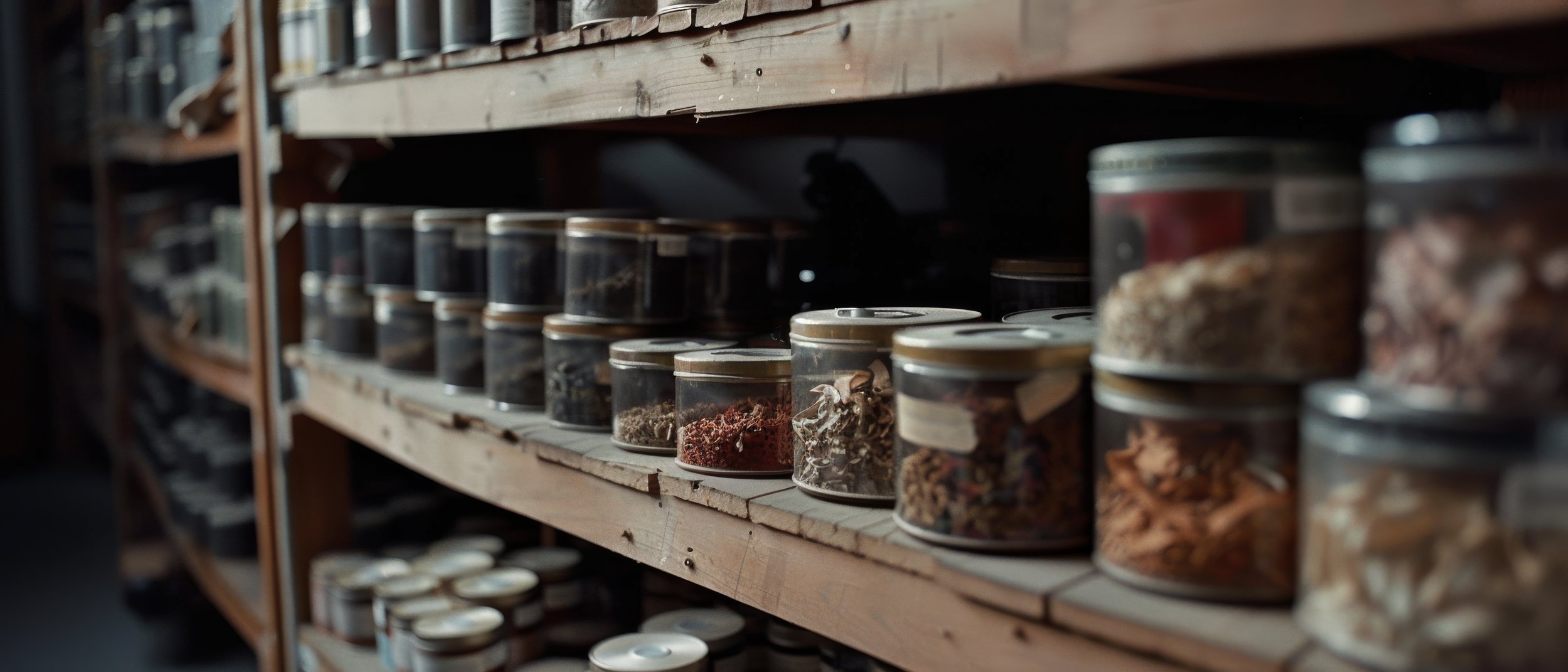
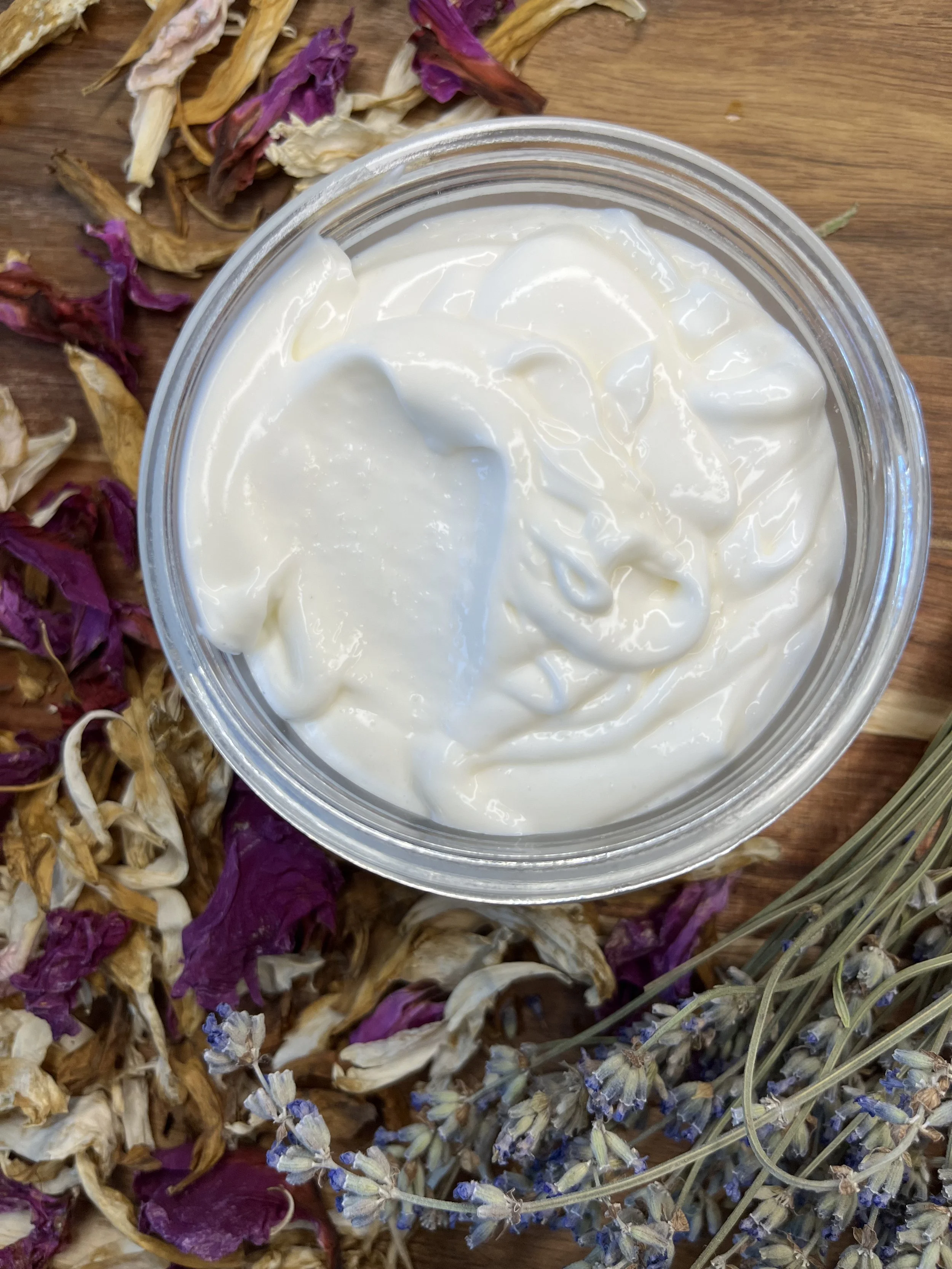
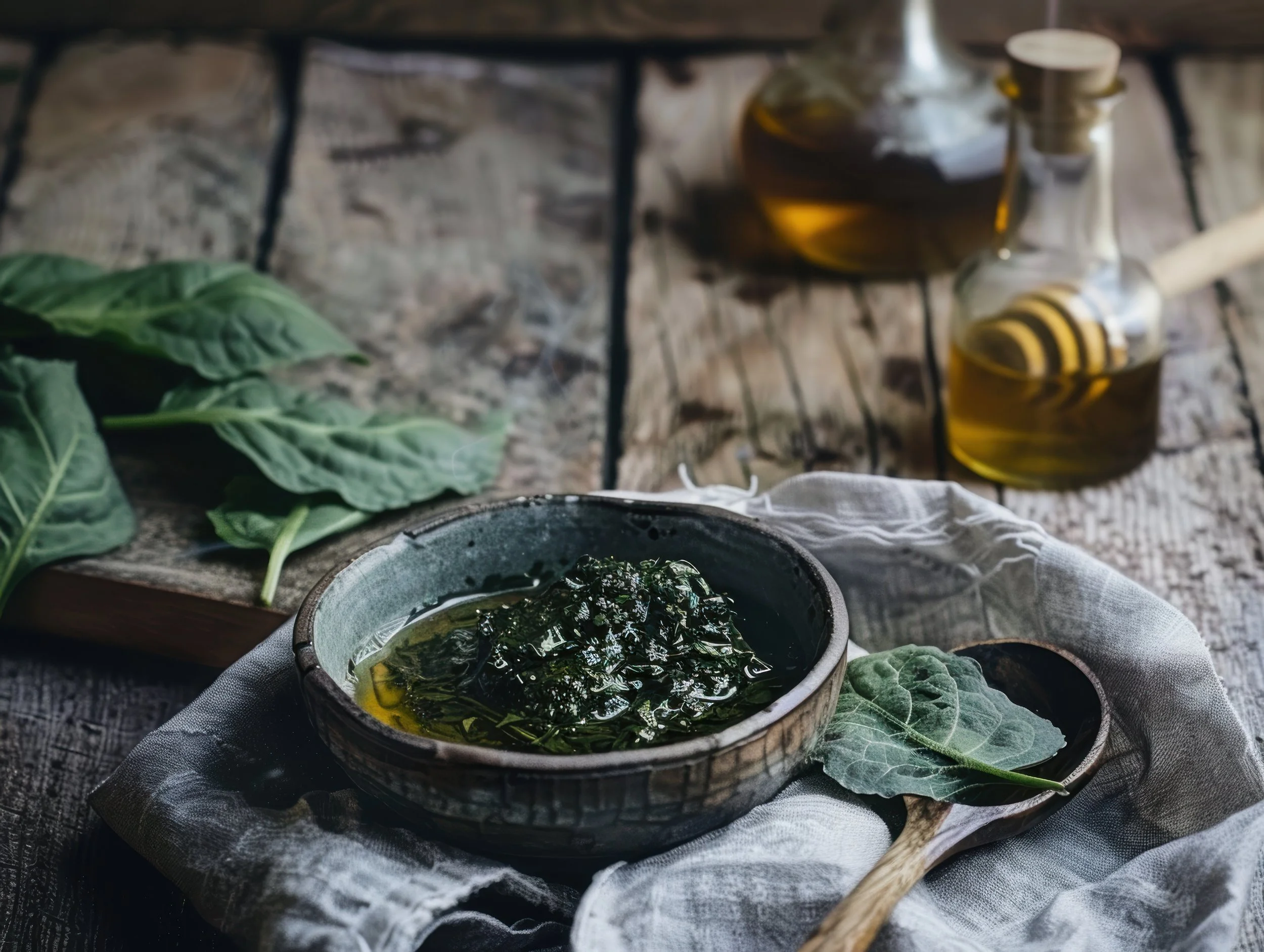
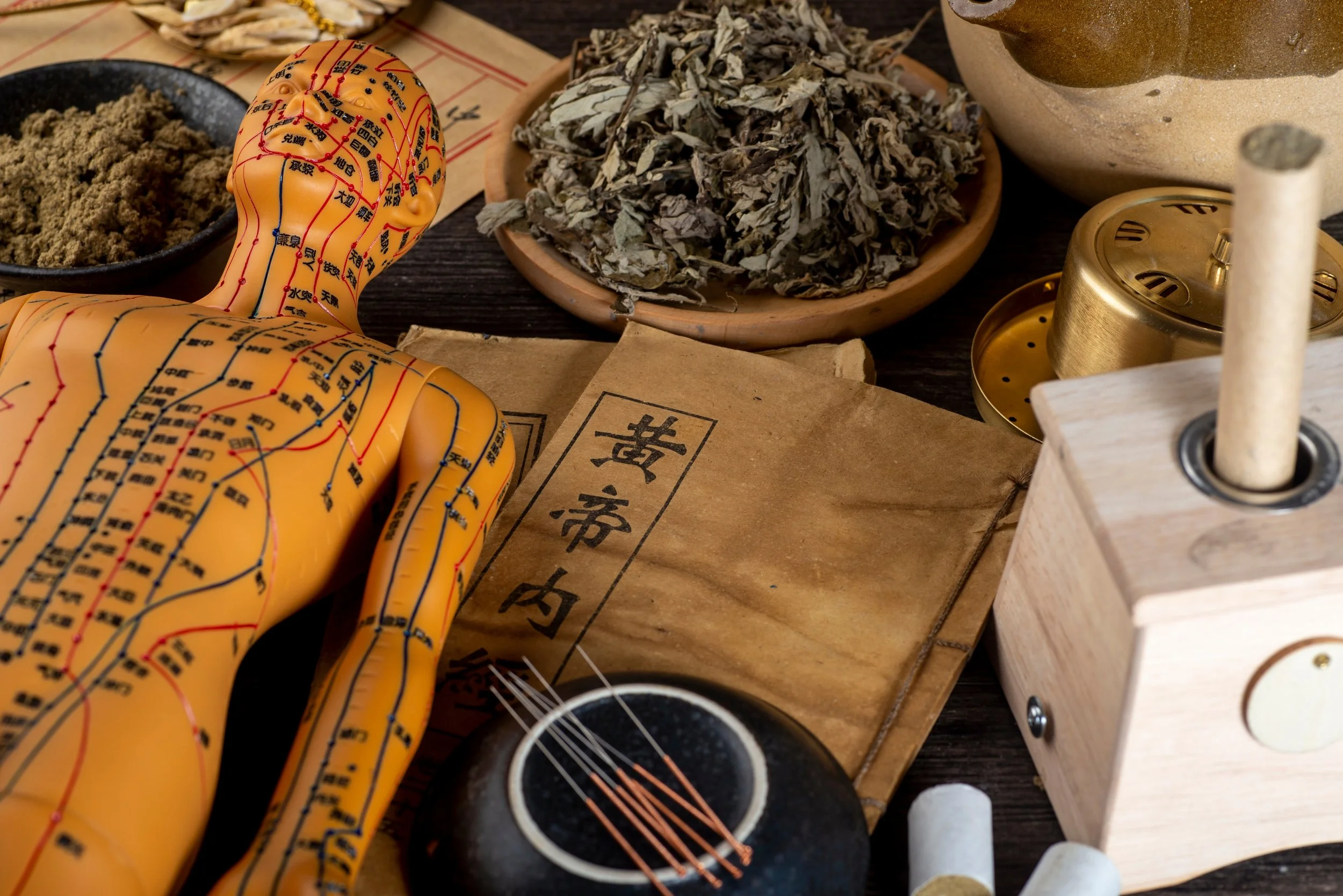





Hello and welcome! I'm Eve, a Chemist turned Herbalist, sharing the wonders of plant medicine and botanical skincare. Join me on this journey to Learn, Create, and Align your Divine!